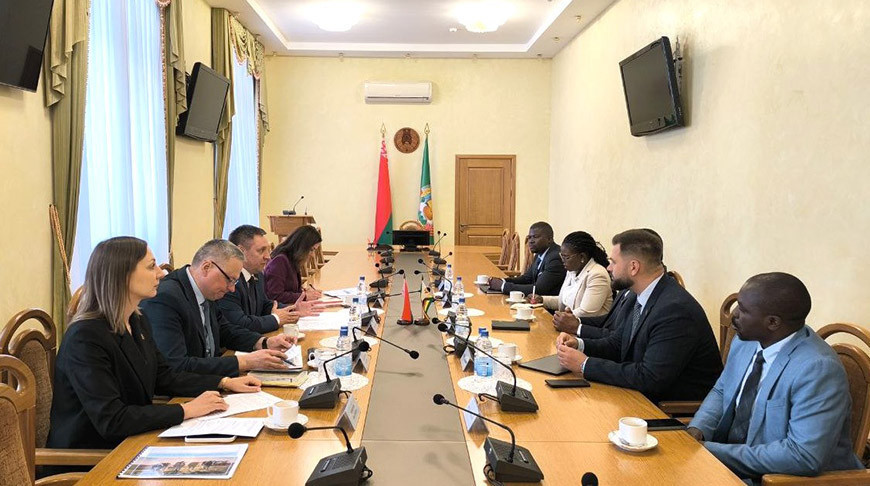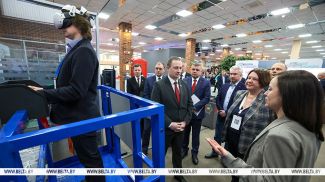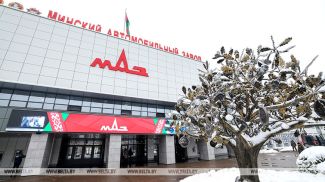
MINSK, 13 May (BelTA) – Zimbabwe is interested not only in importing Belarusian finished products but also in exchanging production technologies, constructing infrastructure for the agricultural sector with the help of Belarusian specialists, and joint educational projects. This was discussed during a meeting between Belarusian Agriculture and Food Minister Yuri Gorlov and Zimbabwe’s Minister of Lands, Agriculture, Fisheries, Water, and Rural Development Anxious Jongwe Masuka in Minsk on 13 May, the press service of the Belarusian Agriculture and Food Ministry told BelTA.
The meeting focused on the current state and prospects of cooperation in agriculture.
Agriculture plays a key role in Zimbabwe's economy, with a significant portion of its workforce engaged in the industry. The country's main cultivated crops include maize, sorghum, peanuts, round nuts, and beans. Zimbabwe has expressed strong interest in expanding trade and economic relations with foreign partners, including Belarus.
According to Yuri Gorlov, the necessary groundwork has already been laid to increase Belarusian exports to Zimbabwe. In 2024, Belarus supplied skimmed dry milk to Zimbabwe, while citrus fruits and flowers were imported to Belarus. At the beginning of 2025, Belarus started to export meat and bone meal.
The approval of the veterinary certificate format and the obtaining of permissions by all Belarusian dairy processing enterprises to export dairy products to Zimbabwe has become a significant step in bilateral relations development. Currently, logistics, customs duties, and the potential increase in supply volumes of baby food, canned meat, and other food products to Zimbabwe are being addressed. Belarus is also ready to assist in training specialists for Zimbabwe’s agricultural sector by enrolling students in specialized universities.
Anxious Jongwe Masuka emphasized that cooperation with Belarus in the agricultural sector is among the most promising areas for Zimbabwe. According to him, Belarusian technologies in dairy and meat production are of great interest to his country.
The meeting also discussed the construction of grain storage facilities. Following the successful use of Belarusian machinery, which contributed to record high wheat harvests in recent seasons, African partners highlighted the necessity of ensuring proper storage conditions for the harvested crops. The meeting concluded with agreements to further cooperation in agriculture, education, and infrastructure development.













